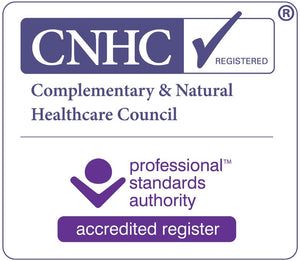No two people’s illnesses are the same, even if their diagnosis is identical. Recognising that everyone’s body, biochemistry and history is unique, is an important part of creating an intervention that really works.
If I feel testing is necessary, I will recommend tests that will provide the best insight into your symptoms and that will help us determine the most suitable course of action for achieving your health goals.
Some of the tests that I use are the same as those used conventionally, although I may be looking at them a little differently, and some are only available privately.
Seeing results clearly laid out can be incredibly informative and motivating. However, testing is not required for us to work together and is something we can discuss at your appointment.
The tests I use typically involve a urine, stool, saliva, blood, breath or hair sample which will be analysed at a range of world-leading laboratories, including Invivo Healthcare, Great Plains Laboratory, Doctors Data, The Doctors Laboratory, BreathTrackers, Precision Analytical, Regenerus Labs and Genova Diagnostics.
There are many different functional tests that can help to identify underlying drivers of ill health. Here are just a few of the common ones used:
NUTRITIONAL STATUS
Nutritional testing helps to give an understanding of an individual's diet and supplementation needs. Nutritional deficiencies can be a factor of many complex chronic conditions.
Assessments may cover Antioxidants, Vitamins, Minerals and Digestive Support to provide nutritional recommendations based on a patient’s individual test results. The tests generally use a urine collection.
Optional add-on blood spot finger stick or blood draw and buccal swab can be utilised to assess fatty acids, toxin status and certain gene variations.
Common clinical indications for testing include:
Mood disorders
Fatigue
Chronic stress
Inflammation
Cardiovascular disease
Obesity/ Insulin resistance/ Type 2 Diabetes
DIGESTIVE HEALTH
Stool tests and microbiome mapping tests can provide actionable clinical information for the management of gastrointestinal health. Cutting-edge technologies and biomarkers provide a picture of your digestive function, intestinal inflammation, intestinal permeability and the intestinal microbiome. They can also detect pathogenic species of bacteria, yeast (e.g. candida), and parasites.
Common clinical indications for testing include:
Bloating
Gas
Diarrhoea
Constipation
Gut pain and discomfort
Reflux
Heartburn
Weight gain
Weight loss
Skin conditions
SIBO
Breath tests can determine if a bacterial overgrowth in the small intestine is an issue. It is important to rule in or rule out SIBO, as this will significantly influence your course of treatment.
BLOOD CHEMISTRY
This test provides a comprehensive insight into full blood count, lipid panel: triglyceride, glucose and cholesterol markers, haematology and biochemistry panels including inflammation markers, some vitamin and mineral markers including iron, ferritin, B12, folate, magnesium, vitamin D, endocrinology (thyroid health) and immunology.
This panel is a fantastic tool to educate adult clients and improve their overall health.
MYCOTOXIN TOXICITY
Mycotoxins (toxins from mould) are some of the most prevalent toxins in the environment. Mycotoxins are metabolites produced by fungi like mould, which can infest buildings and foodstuffs. These fungi then release mycotoxins into the environment causing symptoms of many different chronic diseases.
Mould toxicity can be the cause of a number of unexplained complaints including chronic fatigue, asthma, brain fog, sinusitis, gut dysfunction, skin rashes, depression, ADHD, anxiety, liver damage and urinary irritations.
HORMONE HEALTH
Our busy lives, less-than-optimal diets and toxins in our environment can disrupt our hormones and hugely impact our health.
Tests to help identify hormonal imbalances include:
Adrenal Stress Hormone Profiles: to evaluate your stress levels throughout the day. Cortisol levels are measured to biochemical imbalances that can cause chronic fatigue, weight gain, depression, and anxiety.
Thyroid Hormone Profiles: If your thyroid hormone production and metabolism are disrupted, virtually every metabolic process in the body will be negatively impacted. Thyroid imbalances also significantly impact your mood, energy levels, weight and sex drive.
Sex Hormones Profiles: Female sex hormone testing can shine a light on the underlying causes behind issues including PMS, infertility and menstrual irregularity, as well as perimenopause and menopause symptoms.
If you do not see a test you are looking for listed here or would like advice on which test is best for you, please contact me.



